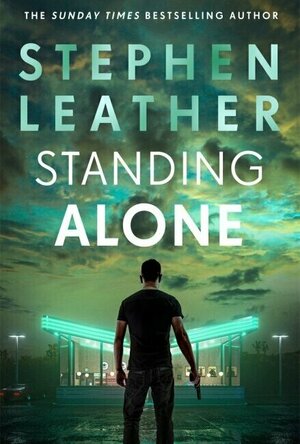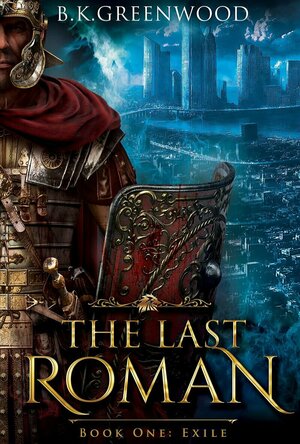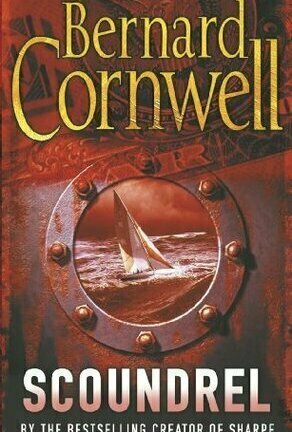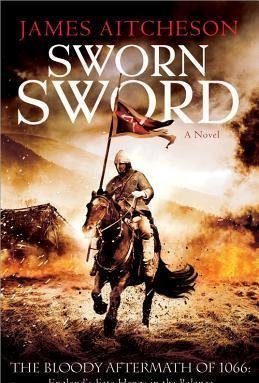Hazel (2934 KP) rated Standing Alone (Matt Standing #2) in Books
Jan 9, 2022
Matt "Lastman" Standing is being blackmailed to do a job for "The Pool", a shady organisation; his mission is to hunt down and assassinate Ryan French, an ex-Navy Seal who hires himself out to the highest bidder. This is not going to be an easy mission and Matt finds himself in the depths of the wilderness in western America knee deep in cannabis and up to his neck in trouble within a very short period of time.
With excellent and strong characters, an immersive plot and full of action, this is a great story. I also learnt a heck of a lot about cannabis farming - not that it'll do me much good but it was interesting nonetheless.
I very much look forward to reading more in this series and my thanks must go to Hodder & Stoughton and NetGalley for my copy in return for an honest, unbiased and unedited review.
David McK (3705 KP) rated Exile (The Last Roman #1) in Books
Feb 12, 2023
That was unexpected.
I actually came across this via an ad on FB (marketing does work!), where it was described as 'Jason Bourne' meets Highlander.
That's actually not all that bad a description.
This is presented chapter about with the 'present day' portion of the tale and the historical parts, with the main character of Marcus - the soldier who put his spear into the side of Jesus Christ whilst he was on the cross - cursed with immortality as a result.
He's not the only immortal: there's also another group, all with links to the same 'original' period of time (I don't want to say too much and give stuff away) living through history as well.
Well, when I say immortal they're not quite immortal: they can be killed for good, but it has to be extreme: a shooting won't do it, say, but being burnt at the stake would ...
Anyway, perhaps the best compliment I can give this is that, after reading it through Kindle Unlimited, I then actually went back and purchased the ebook 'proper', as well as the next in the series.
David McK (3705 KP) rated Scoundrel (the sailing thrillers, #5) in Books
Nov 29, 2023
Maybe because I'm *from* Belfast, Northern Ireland and have relatives who lived through the period of history colloquially known as The Troubles (I was a teenager in the 90s, when they 'ended', and when this is set), so know exactly what the IRA and their loyalist counterparts were/are like.
It made my blood boil to read passages in this where they were treated as heroes by some in Boston (and, yes, I know it's a fiction book): surely to goodness nobody could be that naive??
Anyway, I normally like Bernard Cornwell (Author) novels.
I know he spent a bit of time here (the BBC, I believe?), before moving to the States.
His knowledge of landmarks does show.
I would have thought he would have known better, though, in how he portrays the tangled mess that is politics and history that went on in this fair isle.
Sorry, Mr Paul Shanahan: you're unlikeable as a lead character; no match to a Richard Sharpe or an Uhtred of Bebbanburg.
(his other stand-alone sailing thrillers - those I have read, at least - are all much better)
David McK (3705 KP) rated Sworn Sword (The Bloody Aftermath of 1066, #1) in Books
Jan 30, 2019 (Updated Jul 9, 2023)
Of the two books, I have to say - and despite a title that sounds like a bad b-movie ('"Sworn Sword: 1066: The Aftermath!" coming soon to a theatre near you!') - this is the better. Told in first person prose, this novel is from the point of view of a Norman Knight (whereas <i>Hereward</i> was from that of an Anglo-Saxon), and reminded me very much of one of the better Bernard Cornwell books in that the history covered (albeit slighlty fictionalised to fit the demands of the story) is just as interesting as the actual plot.
The first in a series of books set in the same period, I think I will be picking up more of these!

The Wanderer and the Way (Cuthbert's People #4)
Book
The Camino de Santiago de Compostella, now the most famous pilgrimage route in the world, was...
Historical Fiction Medieval Santiago de Compostela
Rachel King (13 KP) rated The Lens and the Looker in Books
Feb 11, 2019
Backing up, I was very interested in the present-day time period of 2347 and the few details that Kaufman spared regarding this society. Unfortunately, not much is explained about how this society came to be. A brief explanation is given for the planetary population of 300 million, along with other random details interspersed throughout the book, such as every child born is paired with an A.I., people are implanted with a device that keeps disease and infection at bay, and parents are only allowed to have one child with a lottery sometimes allowing for a second child. The purpose of the History Camps are explained through the rebellious attitudes of the three main characters and how they can easily manipulate the system for their own entertainment. As a parent, the word that continually echoed through my head regarding these children in the Hard-Time History Camp is "Spoiled!" Though they are supposed to be learning about how the rebellion of the human populations of the past caused everything from war, to disease, to poverty and famine, the way the children are coddled and protected from any sort of real pain or hardship makes me wonder how these History Camps ever accomplished anything of lasting value in any child.
Once the children are brought to the real Verona and abandoned as orphans, they finally begin to get a taste of real difficulty and hardship, but this is where the believability ends for me. The children had a single day in the History Camp Verona to get acquainted with their roles, and they show up in the real Verona as near-experts, maneuvering the details of their jobs to accommodate for comfort and ease of use that the family they work for is not familiar with, of course all with the help and direction of a very convenient genie. On top of all of this, the three children become agreeable, cooperative, and hard-working practically overnight, with little sign of the rebellious tendencies that put them in a History Camp in the first place. These transitions in character development felt forced to me.
Another aspect that really bugged me from the beginning of the book was the awkwardness of the dialog throughout the book, specifically regarding the children's speech. It felt stilted and over-simplified, and slowed down my reading because I consistently felt that children today did not speak like this. Some of the speech of the people native to the real Verona also seemed strange, but I attributed that to the speech of the time period.
Many of the characters took on unique facets that made them rather memorable to me, such as Ugilino's looks and arrogance, Signora della Cappa's madness, and Shamira's artistic inclinations. The budding romance between Hansum, or "Romero", and Guilietta copies the Shakespearean play, "Romeo and Juliet", in many ways, down to the presence of a Father Lurenzano, and I have to wonder about Kaufman's motivations for working this tale into the plot. And again, their romance also felt forced and over-the-top, missing the reality-warping conviction that is obvious in the original Shakespeare story.
I also have to wonder how these advancements that the three children are introducing to 1347 Verona are actually affecting the progression of time, since this is a much harped-upon concern regarding time travel. The only thing that is apparent to both the children and the reader is the quaint changes made to the appearance of the genie. Something else that is also mentioned early on is that this is also the same time period as the Black Plague, which has yet to make an appearance. Hopefully, the next book in the trilogy will address these things, The Bronze and the Brimstone: The Verona Trilogy, Book 2.
This book seemed geared to appeal to pre-teens and young teens in many ways, but as an adult reader, it left much to be desired for me.

LearnEnglish Kids: Playtime
Education and Entertainment
App
Read and watch fun animated songs and stories to help your child develop in key areas in English:...

Speakaboos - The Reading and Learning App for Kids
Education and Book
App
The only reading app designed to motivate kids to read! ** Over 200 interactive stories & songs that...

3rd Grade Math: Fractions, Geometry, Common Core
Education and Games
App
LogTera Grade 3 Math app provides the most fun game for children 5 to 9 years, while comprehensively...





